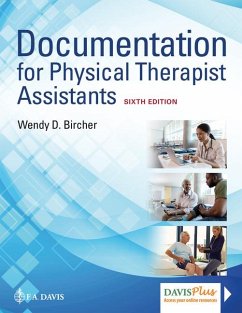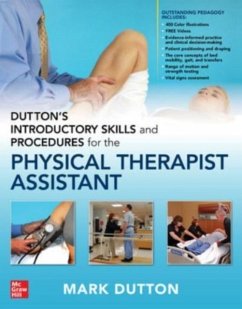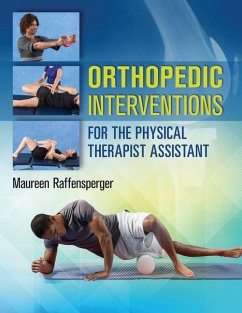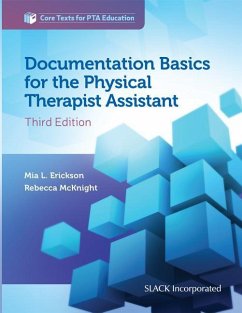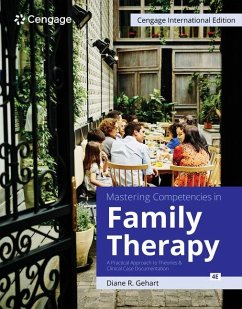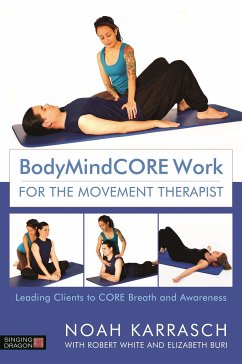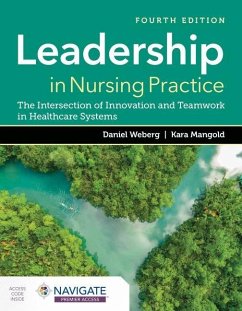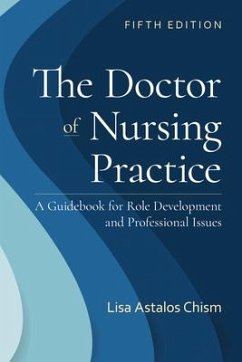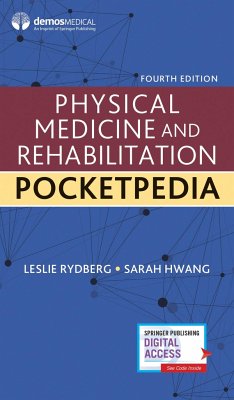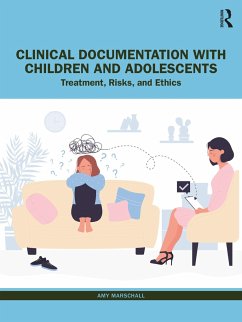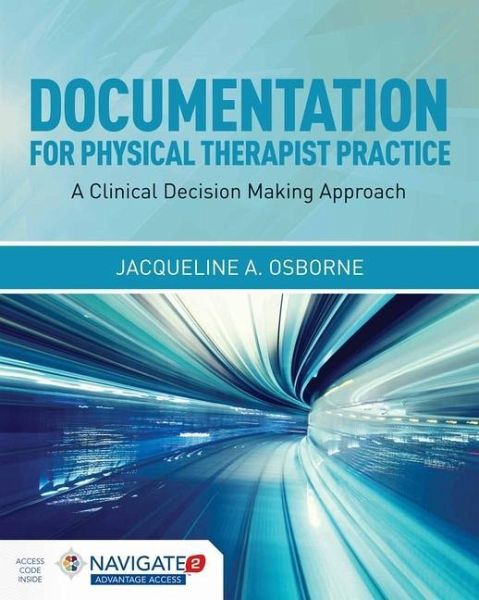
Documentation for Physical Therapist Practice: A Clinical Decision Making Approach
.
Versandkostenfrei!
Versandfertig in über 4 Wochen
83,99 €
inkl. MwSt.

PAYBACK Punkte
42 °P sammeln!
Successful Documentation: A Guide for Physical Therapists and Physical Therapist Assistants provides the framework for successful documentation. It is synchronous with Medicare standards as well as the American Physical Therapy Association's recommendations for defensible documentation. It identifies documentation basics which can be readily applied to a broad spectrum of documentation formats including paper-based and electronic systems. This key resource skillfully explains how to document the interpretation of examination findings so that the medical record accurately reflects the evidence. In addition, the results of consultation with legal experts who specialize in physical therapy claims denials will be shared to provide current, meaningful documentation instruction. Includes content on documentation formats (i.e. Initial Evaluation, Interim Notes, Follow-up Notes, Reassessment, and Discharge Summaries) Reviews all the important issues related to style, types of documentation, and utilization of documentation Covers documentation relevant in different settings (inpatient, home health, skilled nursing facility, outpatient) Helps students learn how to report findings and demonstrate an appropriate interpretation of results Includes up-to-date information in line with APTA Guidelines for Defensible Documentation, World Health Organization, International Classification of Functioning Enablement Mode, Disability, Medicare, and Health terminology Reviews electronic documentation, ICD-9, ICD-10, and CPT codes Includes important chapters on Interprofessional Communication, Legal Aspects, Principle of Measurement, Troubleshooting, and SOAP Notes
Emphasizes how the common and standard language of the Guide to Physical Therapist Practice and the International Classification of Functioning, Disability, and Health (ICF) model can be integrated with a physical therapist's clinical reasoning process and a physical therapist assistant's skill set to produce successful documentation. Original.



